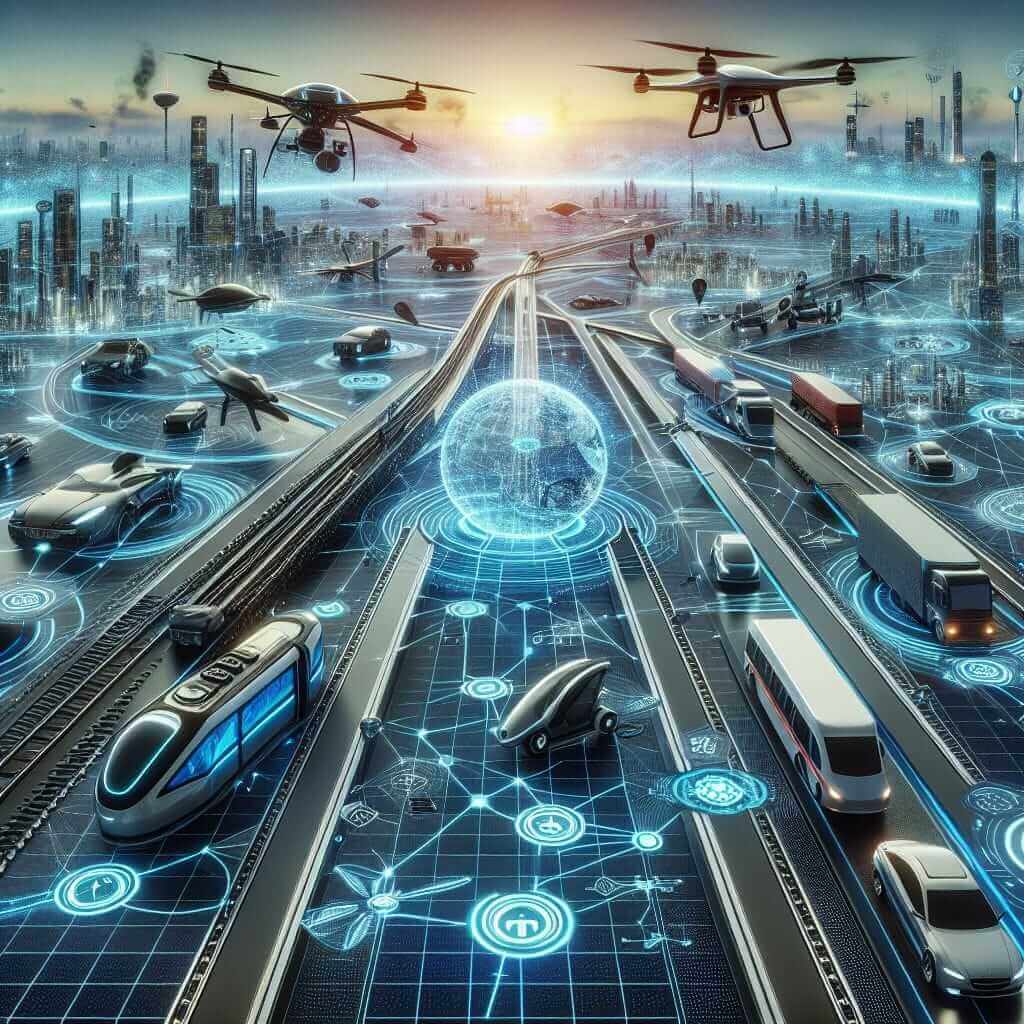The IELTS Reading test challenges candidates to demonstrate their reading skills through a variety of texts and question types. One current and frequently discussed topic is the impact of Artificial Intelligence (AI) on global logistics and transportation. This topic is highly relevant due to the ongoing technological advancements and their implications for the global supply chain. Understanding this topic not only prepares you for potential exam questions but also broadens your knowledge of contemporary issues.
Main Content
Reading Passage
The Impact of AI on Global Logistics and Transportation
Artificial Intelligence (AI) is revolutionizing multiple sectors, and logistics and transportation are no exceptions. Logistics involves the coordinated movement of goods, and AI technologies are significantly enhancing efficiency in this field. AI applications in logistics include optimizing delivery routes, predicting maintenance needs, and managing inventory.
Moreover, AI-driven tools are reshaping transportation networks. Autonomous vehicles, powered by AI, promise to reduce human error and enhance safety. Predictive analytics helps in anticipating traffic patterns and avoiding delays, while AI-powered drones are being tested for delivering goods to remote areas. These innovations not only reduce costs but also improve service reliability and environmental sustainability.
Despite these advancements, challenges remain. Ethical concerns, regulatory issues, and the need for substantial investments are major barriers to widespread AI adoption in logistics and transportation. Additionally, there is a growing concern over the potential job displacement resulting from increased automation. Therefore, balancing technological progress with social and economic considerations is crucial for a sustainable future.

Question Set
Multiple Choice Questions
-
What is one of the primary applications of AI in logistics mentioned in the passage?
- A. Reducing human labor costs
- B. Optimizing delivery routes
- C. Managing autonomous vehicles
- D. Enhancing regulatory requirements
-
How do AI-powered drones benefit the transportation sector?
- A. By improving service reliability
- B. By predicting maintenance needs
- C. By managing inventory
- D. By reducing human error
True/False/Not Given
-
AI helps in anticipating traffic patterns and avoiding delays.
- True
- False
- Not Given
-
The use of AI in logistics has completely eliminated the need for human labor.
- True
- False
- Not Given
Answer Key
- B – Optimizing delivery routes is one of the primary applications of AI in logistics mentioned in the passage.
- A – AI-powered drones benefit the transportation sector by improving service reliability.
- True – The passage states that predictive analytics, a form of AI, helps in anticipating traffic patterns and avoiding delays.
- False – While AI enhances logistics operations, it has not completely eliminated the need for human labor.
Common Mistakes and Tips
- Misinterpreting Details: Ensure you focus on the specific details in the passage. For example, understanding the difference between predicting maintenance needs and optimizing delivery routes is crucial.
- Overlooking Keywords: Pay attention to keywords like “autonomous vehicles” and “predictive analytics” to navigate the passage more effectively.
- Time Management: Practice managing your time well to ensure you can answer all questions without rushing.
Vocabulary
Here is a list of challenging vocabulary from the passage:
- Revolutionizing (v): Changing fundamentally (ˌrɛvəˈluːʃənˌaɪzɪŋ)
- Efficiency (n): The state or quality of being efficient (ɪˈfɪʃənsi)
- Autonomous (adj): Acting independently or having the freedom to do so (ɔːˈtɒnəməs)
- Predictive analytics (n): Using data, statistical algorithms, and machine learning techniques to identify the likelihood of future outcomes based on historical data (prɪˈdɪktɪv ˌænəˈlɪtɪks)
Grammar
Complex Sentences: The passage uses complex sentences to convey detailed information.
- Example: “Despite these advancements, challenges remain, such as ethical concerns, regulatory issues, and the need for substantial investments, which are major barriers to widespread AI adoption in logistics and transportation.”
Grammar Tip: Practice using complex sentence structures to express detailed and nuanced information clearly and effectively.
Conclusion
To excel in the IELTS Reading test, it is essential to practice regularly with various topics, including the impact of AI on global logistics and transportation. By focusing on understanding the text, improving your vocabulary, and practicing different types of questions, you can enhance your reading skills and perform better in the exam. Remember, continuous practice and familiarity with various topics will build your confidence and proficiency for the actual test.